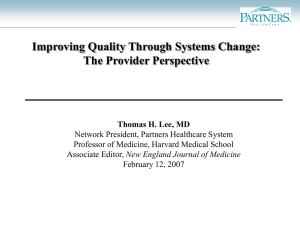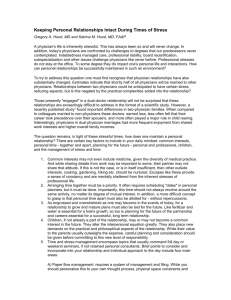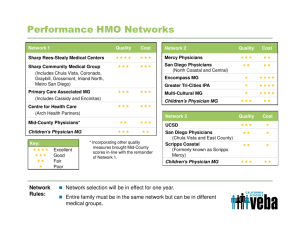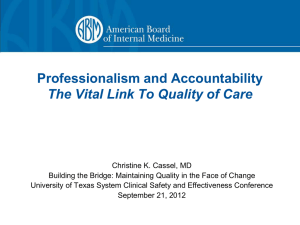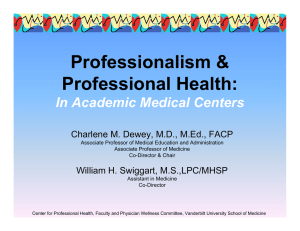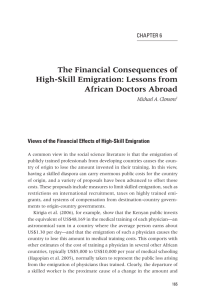B29©: A 360° Assessment of a physician’s workplace behavior
advertisement
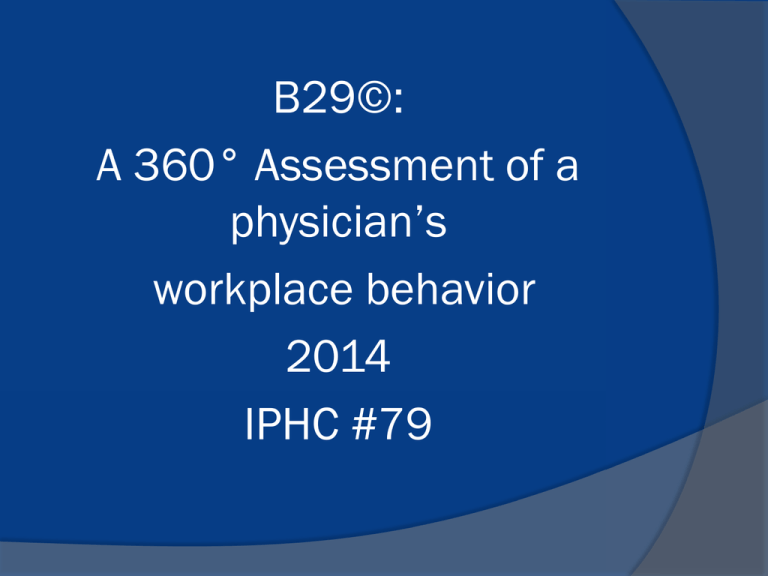
B29©: A 360° Assessment of a physician’s workplace behavior 2014 IPHC #79 The Center for Professional Health Vanderbilt University School of Medicine William Swiggart, MS, LPC/MHSP Charlene M. Dewey, M.D., M.Ed., FACP Kenneth Walston, Ph.D. Betsy White Williams, Ph.D., MPH Marine V. Ghulyan, MA Michael V. Williams, Ph.D. Background The unprofessional behavior of physicians continues to be a nationally recognized problem affecting a culture of safety. Physicians need objective assessments on competencies that lead to behavior change and remediation. When “a little chat” doesn't work Mr. Bangsiding felt (and wrongly so) that a little chat would be enough to stop Dr. Bob’s disruptive behavior. Flooding* “This means you feel so stressed that you become emotionally and physically overwhelmed…” “Pounding heart, sweaty hands, and shallow breathing.” “When you’re in this state of mind…you are not capable of hearing new information or accepting influence.” *John M. Gottman, Ph.D. The Relationship Cure, Crown Publishers, New York, 2001, 74-78. The B 29© The B 29© is a 360° assessment of physician’s workplace behavior. It provides objective data for both the physician and the institution or practice setting. The B 29© is based on the American Board of Medical Specialties and the Accreditation Council for Graduate Medical Education (ABMS/ACGME) six core competencies. It provides a measurement consistent with the literature and our experience of those areas of functioning related to interpersonal skill and communications, professionalism, and team behavior for healthcare professionals. Purpose Physicians with unprofessional behavior can benefit from specific and clear feedback about their behavior to make needed changes. We created a valid and reliable instrument to track and assess behavior change over time that can be used to complement and augment patient complaint data within the institution. We present the psychometric properties of the B 29©. Methods A matched case–control design (N=9 pairs) Analyzed to determine whether there is a significant difference between the physicians referred to the Distressed Physicians Program at the Center for Professional Health and the control (non-referred) physicians. Participants were matched for age ± 5 yr., specialty, graduation date from a medical college, and gender. Human subjects' approval was obtained from the Institutional Review Board at Vanderbilt University. Results B29© Sample Page Conclusions Physicians referred to the CME course have consistently scored below average on all four factors compared to the control group. The B 29© is a validated and easy to use 360° assessment instrument that can provide the basis of discriminating between those who have been identified as unprofessional and those who are not. The B 29© can be used monitor behavior over time. Questions B29© Visit our website for further information: www.mc.vanderbilt.edu/cph
